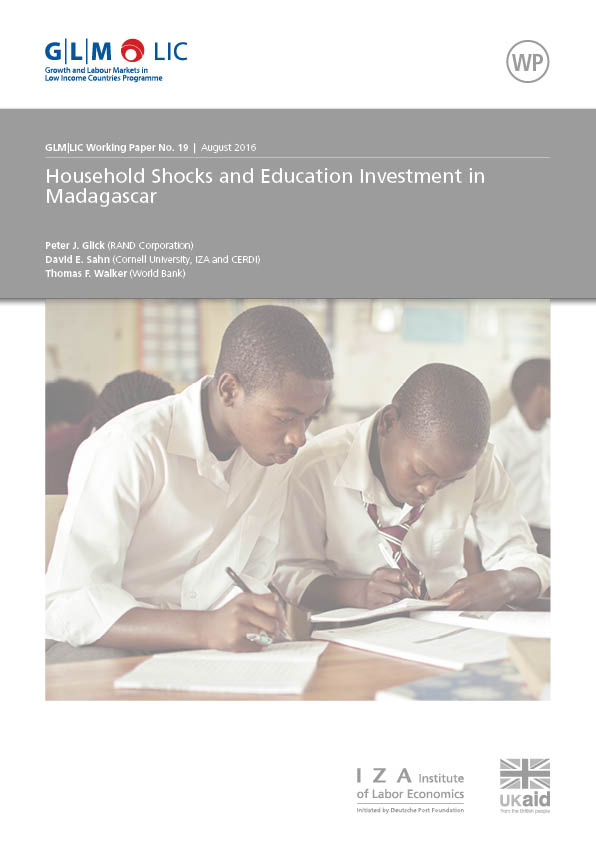This paper measured the extent to which households in Madagascar adjust children’s school attendance in order to cope with exogenous shocks to household income, assets and labour supply. Our analysis was based on a unique data set with 10 years of recall data on school attendance and household shocks. We found that the probability of a child dropping out of school increased significantly when the household experienced an illness, death or asset shock. We proposed a test to distinguish whether the impact of shocks on school attendance could be attributed to credit constraints, labour market rigidities, or a combination of the two. The results of the test suggested that credit constraints, rather than labour market rigidities, explain the inability of households in Madagascar to keep their children in school during times of economic distress.

Household Shocks and Education Investment in Madagascar
- David E. Sahn
- Peter Glick
- Thomas Walker